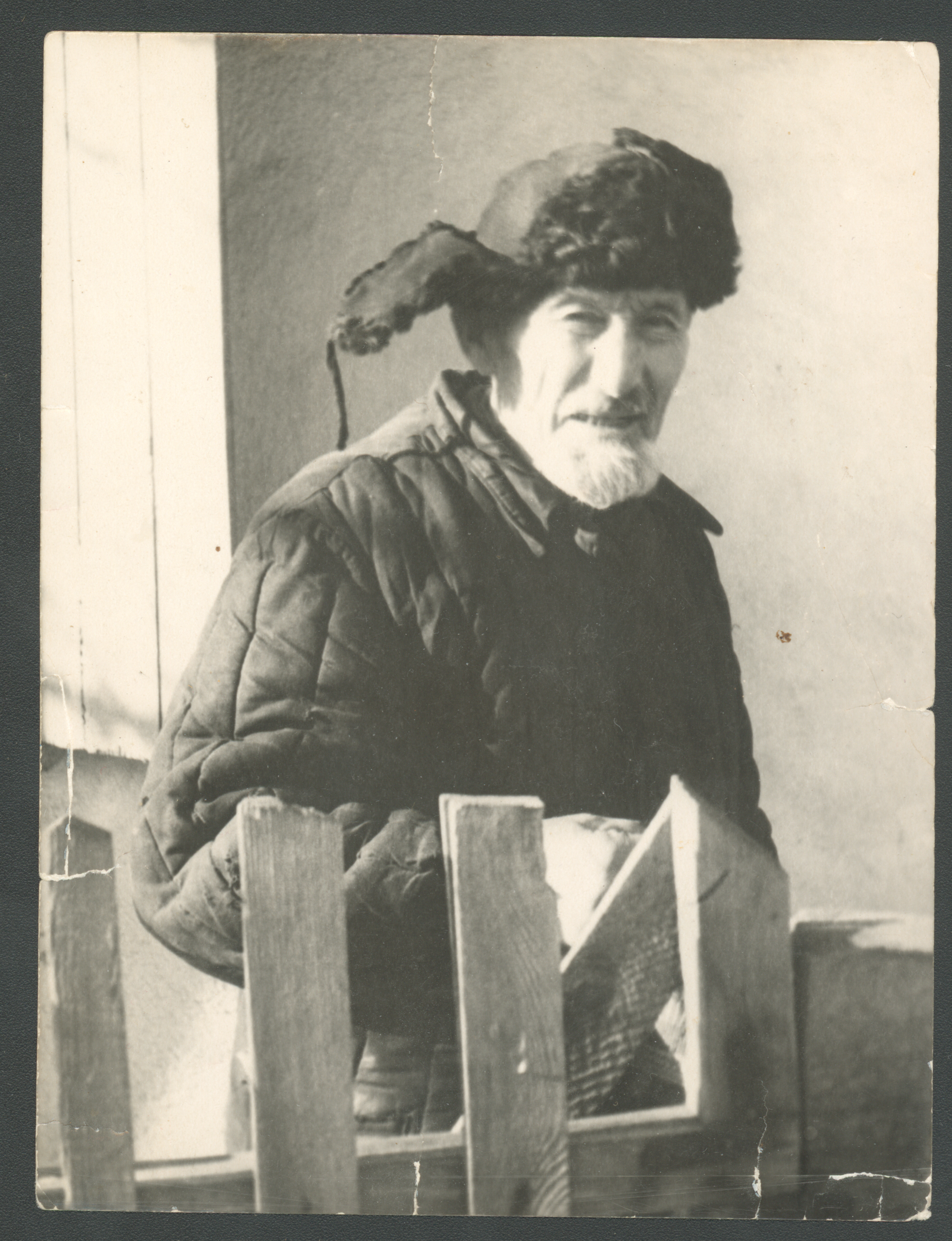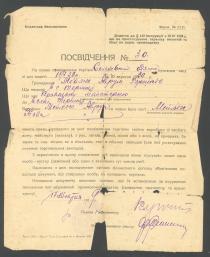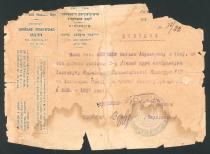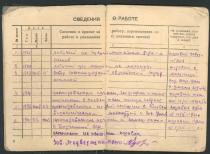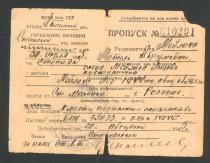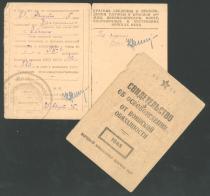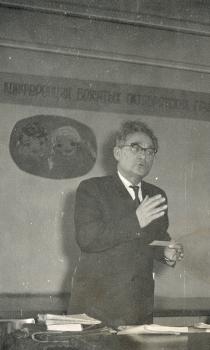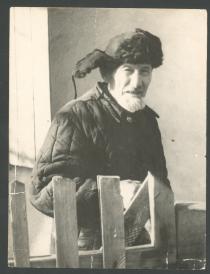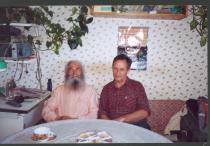This is my father, Avrum Meilakhs, at the age of 90 in Kazakhstan.
My father was born in the settlement of Tyrlitsa, Monastyrischi district, Lipovetski region of Kiev province in 1876. He studied in a сheder, and could write neither Russian, nor Ukrainian, only Yiddish and Hebrew. But he knew the Torah by heart. He was an Orthodox Jew. He observed the kashrut, absolutely all holidays and prayers. Father served in the imperial army between 1897 and 1901. And the commander of their regiment was very insistent in persuading him to get christened. Father was a very good soldier, first in all affairs, and he had constantly heard: ‘Get christened, we will teach you, we will help you.’ My parents used to read the prayer ‘Shma’ every day. Mom and Dad would pray and I would repeat after them. So by the time I learned to speak, at about three-four years of age, I learned to pray as well.
From 14 years of age Father worked as a sales assistant in a shop of a rich Jew. Later my father became a tailor, and was engaged in small trade, and Mom helped him. Daddy worked as a sales assistant for my mother’s uncle, a very well known man called Neller Shlay. Obviously, it is through him that they got acquainted. They got married in a synagogue. Civil marriages were very much condemned at the time. They got married in a synagogue, in accordance with all customs, everything was done as necessary. Their marriage was registered in 1903 in the settlement of Tyrlitsa, and in 1904 my sister was born.
My father was the village headman. All the provisions for the poor, all donations and mutual aid went through him. On Friday morning bread for Saturday was baked in each Jewish family. And each family baked a small bun for paupers. And my granny would send her elder grandson to collect them. When I grew up and was about eight years old, we used to wander with a basket around the settlement from house to house, and the folks gave us those buns. We brought them to Grandmother, from one street, from another, from the third, and then she arranged, who of the beggars the buns should be taken to. And thus, from my childhood I’ve seen enough of the real beggars. Usually they were sick people. In the synagogue you could also meet poor men, but not from the nearby settlements. The beggars would leave their native places not to dishonor their relatives. In the synagogue on Friday night there also were about eight to ten beggars. It was seen to it that each well-off Jew would take a beggar to his home for Friday and Saturday. And in our house, as a rule, there always was a poor man sitting at the table with us on Friday. I saw many of them in our house.
Father was evacuated to Alma-Ata during the war. After the war he didn’t get any pension, I supported him. My wife went to see him every seven months and brought him the money. It was impossible to transfer money then. When she visited him, she washed his clothes and helped him about the house. And then she would put the money in his bank account.
